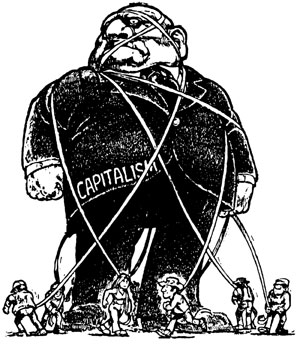 |
Protesting has become fashionable and the way resources are mobilised for protests, one wonders if they end up supporting the market. The money that goes into slogan printed T-shirts, the expenses of mobilising supporters (including travel), and the biggest contribution of protestors � to increase the TRP ratings of mostly privately owned media. Whose interests are such protests supporting?
Left-wing shenanigans always take advantage of such protests, be it at Davos or Toronto. But the time has come to consider whether these movements have outlived their utility. The reality is, to think that socialism is going to re-enter the global economic sphere as a viable model, is just wasting time. Market-led models have had more lasting impacts on economic growth, leading more and more countries, including former bastions of socialism, to adopt the same. But the challenge is now more to redefine the role of the state, sovereignty, political boundaries and market regulations. The focus is more to ensure global monopolies are not created and that there is a level playing field for all players in the market.
This also means reconsidering the laws relating to the freedom to travel. A Nepali company should be able to compete with an American company for a contract in South Africa, but the Nepali company should not be asked to wait for three weeks to get a visa. In that time, the US company can take the next flight, do its pitch, and seal the contract! It's more important to create meaningful pressure in these summits for access to markets than go on about how markets are irrelevant. If the gaps between high-income economies and low-income economies are to be narrowed, then the shackles on movement need to be loosened. Imagine if the citizens of Singapore or the UAE were governed by the same visa regulations as Nepalis. Would they manage economic growth of that magnitude?
It's also worth perusing Gurcharan Das's 'Dharma of Capitalism'. If individuals and nations, especially high-income ones, are not going to change the way they look at spending, then disparities will never cease. The spending on pets in the US is nearly half the GDP of the entire African continent and the turnover of Louis Vuitton Moet Hennessy, a high-end brand stable, is equal to the GDP of Nepal. The economic crisis was created by greed. Some see greed as the driver of capitalism but we need to continue to take advantage of the benefits of the market economy while distinguishing between profit and profiteering. The next world order will surely depend on how we can make markets work for all, or many will continue to see the G8 and the G20 as simply the Greedy Eight and the Greedy Twenty.
READ ALSO:
Romancing power, courting a constitution, MENAKA GURUSWAMY
Nepal's Nepal, PUBLISHER'S NOTE
Elusive unity, PRASHANT JHA
Chhi-chhi to chichi, RABI THAPA
Is it ok to cheat in football?, PETER SINGER



